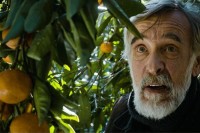EUROPEAN SHOOTING STARS shining brightly for the 65th Berlinale
Polish film production has moved to the top ranks of the CEE film industry, thanks to the commitment to film funding through the Polish Film Institute and a strong system of regional film funds. Polish broadcasters also continue to play an important role in film production, coproducing many Polish films. However, Poland continues to lag behind its CEE neighbors in introducing film incentives for foreign productions.
Political turmoil resulted in the resignation of the country’s cabinet in July, the appointment of a caretaker government in August and early Parliamentary elections in October. Within the year, the Ministry of Culture changed its leadership three times, while the National Film Center got a new acting director in March. Against the background of a slight increase of audience interest in national film production, especially films funded by private sources, the production of TV series dropped.
FNE asked Latvian producer Vilnis Kalnellis about the advantages of working as a producer in a small country like Latvia and the particular problems producers in small countries face.
IDF is using its platform to garner financial support for ailing Georgian filmmaker Temo Tsava.
Georgian cinema is on the rise with films selected in Berlin, Cannes and Venice in 2014, and an Estonian/Georgian coproduction, Tangerines (produced by Estonia’s Allfilm and Georgia’s Cinema24) nominated for the Golden Globes.
Ida by Pawel Pawlikowski has won the European Parliament's LUX Prize 2014.
FNE spoke to the young Latvian producer and director Andris Gauja of The Lesson about how the new generation of Latvian filmmakers are using crowd funding, pitching sessions and other innovative tools to put films from small countries on the international map.
The launch of Slovakia’s Audiovisual Fund five years ago has reaped benefits for Slovak film production abroad and at home. Slovakia continues to find success internationally, powered by its documentary film production and more recently by genre-bending feature film productions informed by documentary techniques, with a pair of female directors receiving the lion’s share of laurels over the past year.
The Lithuanian film industry noted several recent successes with films selected for major festivals that found favour at the local box office and with the announcement that 23-year old Lithuanian actress Aistė Diržiūtė had been selected as one of the EFP Shooting Stars of 2015. The foreign film servicing industry continues to do well.





























